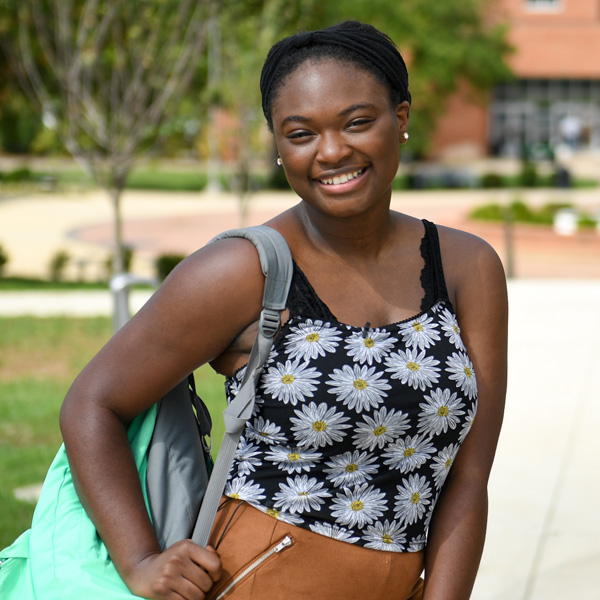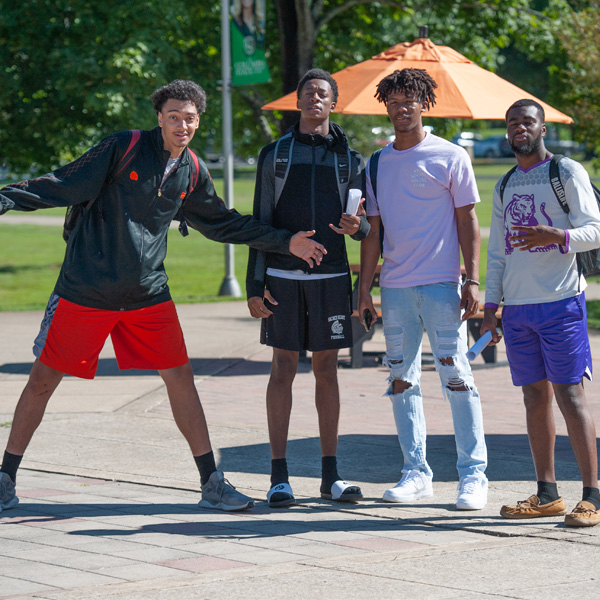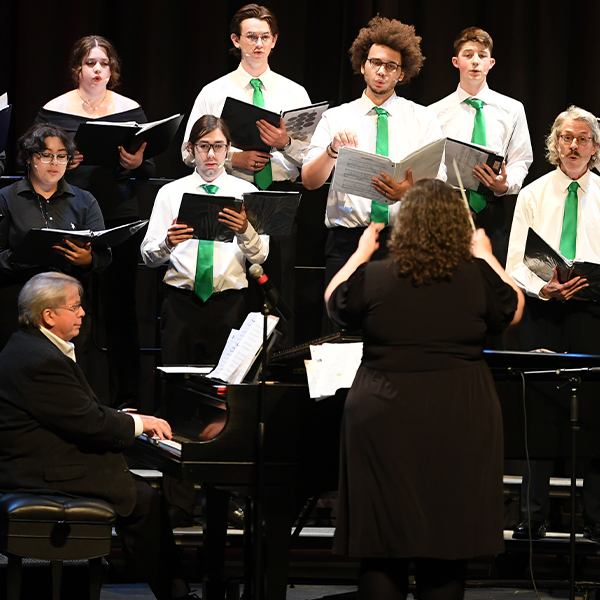Columbia State presents Canons and Contexts English lecture series
(COLUMBIA, Tenn. - Sept. 29, 2017) - - - Columbia State Community College presents the 2017 Humanities and Social Sciences lecture series featuring professors from the college's English department. This year's lecture series titled "Canons and Contexts" will start on Oct 2. in Clement 112.
This series focuses on emerging issues in English studies - traditional canons in English are being transformed by new forces including internet fandom, literacy studies, feminist studies, science fiction and the resurgence of retro fiction have fueled recent developments in English scholarship. The series poses the questions of what great literature of the internet era is, and how can literature of the past fuel future research for the incoming generation studying in the field.
Emilee LeClear, Columbia State adjunct English instructor, will present "Comic Cons and Canterbury: Historical Connections to Pop Culture" Oct. 2. at 4 p.m. The rise of "nerd" or "geek" culture in the last decade has led to greater acceptability to attending comic or pop culture conventions and cos-play/costuming - it's not just for Halloween anymore. Do these seemingly modern-day pop culture practices have earlier roots? Are these current events and practices late 20th century/early 21st century creations, or can they be connected to medieval and renaissance cultural practices? Come join the exploration and discover if the Batman, Star Trek and/or Whovian cos-player who goes to San Diego or Atlanta or London is a modern-day version of one of Chaucer's pilgrims or Henry VIII's courtiers.
On Oct. 10 at 4 p.m. Stuart Lenig, Columbia State professor of communications and drama, will present "The Dark, Disturbing, Alternate History, Paranoid, Dreadfully Unhappy Future of P.K. Dick." In a series of novels spanning the fifties through the eighties, Phillip K. Dick pioneered a form of science fiction that dwelled on alternative histories, dystopian societies, paranoid characters and an inextricable matrix of events that doubted positive human outcomes. Dick was often mentally unbalanced, living in a state of altered consciousness, suffering from paranoia and emotionally challenged. Yet in the 35 years since his passing he has become the most filmed author of science fiction works in Hollywood. This year his short stories are becoming at TV series, The Man in the High Castle entered a second season and Bladerunner 2049 updates his 1982 science fiction classic. Join us for a journey into the mind/works of sci fi's disturbed genius.
On Nov. 7 at 6 p.m. retired professor of English, Dr. James Senefeld, will present "Genre Novelists and the Canon: The Quiet Resurgence of Sax Rohmer, Rex Stout, John Christopher, E. E. Doc Smith, Philip Wylie, Edward Balmer, James Thurber and P. G. Wodehouse: A reading list of old authors that are finding surprisingly young audiences." Humor, mystery and science fiction authors of the past are bringing fresh insights to a complicated and diverse audience from around the globe. How is the literature of yesterday shaping tomorrow's audience? Senefeld guides us through the terror of Sax Rohmer's mysterious Asian menace, Fu Manchu, Wylie and Balmer's apocalyptic sci fi, When Worlds Collide, and P.G. Wodehouse's dotty adventures of Bertie Wooster and his butler, Jeeves.
On Nov. 28 at 4 p.m. Victoria Gay, Columbia State dean of the Humanities and Social Sciences Division, Learning Support director and associate professor of English, will present "The Emerging Field of Literacy Studies: Toward Creating a Smarter America." The interdisciplinary field of literacy studies aspires to bridge the gap between education research and classroom practice. Also known as the Nation's Report Card, the National Assessment of Educational Progress publishes statistical data regarding state and district, public and private school student proficiency rates in math, reading, writing, science, history and many other disciplines for 4th, 8th and 12th graders. How do social and political factors influence the low proficiency levels Tennesseans, as well as citizens of numerous states, see in their schools? What roles do socioeconomic circumstances, school funding, bilingual versus English-only instruction and technology-driven learning play in the struggle to improve America's verbal and numerical literacy rates? Does research for effective practices make its way into classrooms? Are we spending resources targeted for education wisely and justly? Most importantly, how do we use what we know today to provide the best-prepared workforce for tomorrow?
On Dec. 5 at 4 p.m. Jessica Evans, Columbia State instructor of English, concludes the series with "The Making of a Mentor: Advice to Future Scholars." While we all may have a concept of what makes an ideal mentor, we may not be aware of the fact that mentor figures have appeared in literature from antiquity. In fact, during the 1790s and the chaos of the French Revolution, several British women writers addressed their own social concerns (female education, the role of sensibility, men's and women's social positions) through their depictions of the male mentor figure. In this lecture, Evans will share some of her research and findings from her dissertation "The Male Mentor Figure in Women's Fiction, 1778-1801." To make it more applicable for current students and future scholars, she attempts to trace the development of the project and "tricks of the trade" that helped her to turn a novel she enjoyed into articles and a full-length dissertation.
The Humanities and Social Sciences Lecture Series has evolved to explore classic, contemporary, and evolving issues in culture, fine arts and society. This year, the series is highlighting the achievements and issues in English and the Language Arts.
The series is free and open to the public. The Frank G. Clement Building is located on the Columbia Campus located at 1665 Hampshire Pike.







